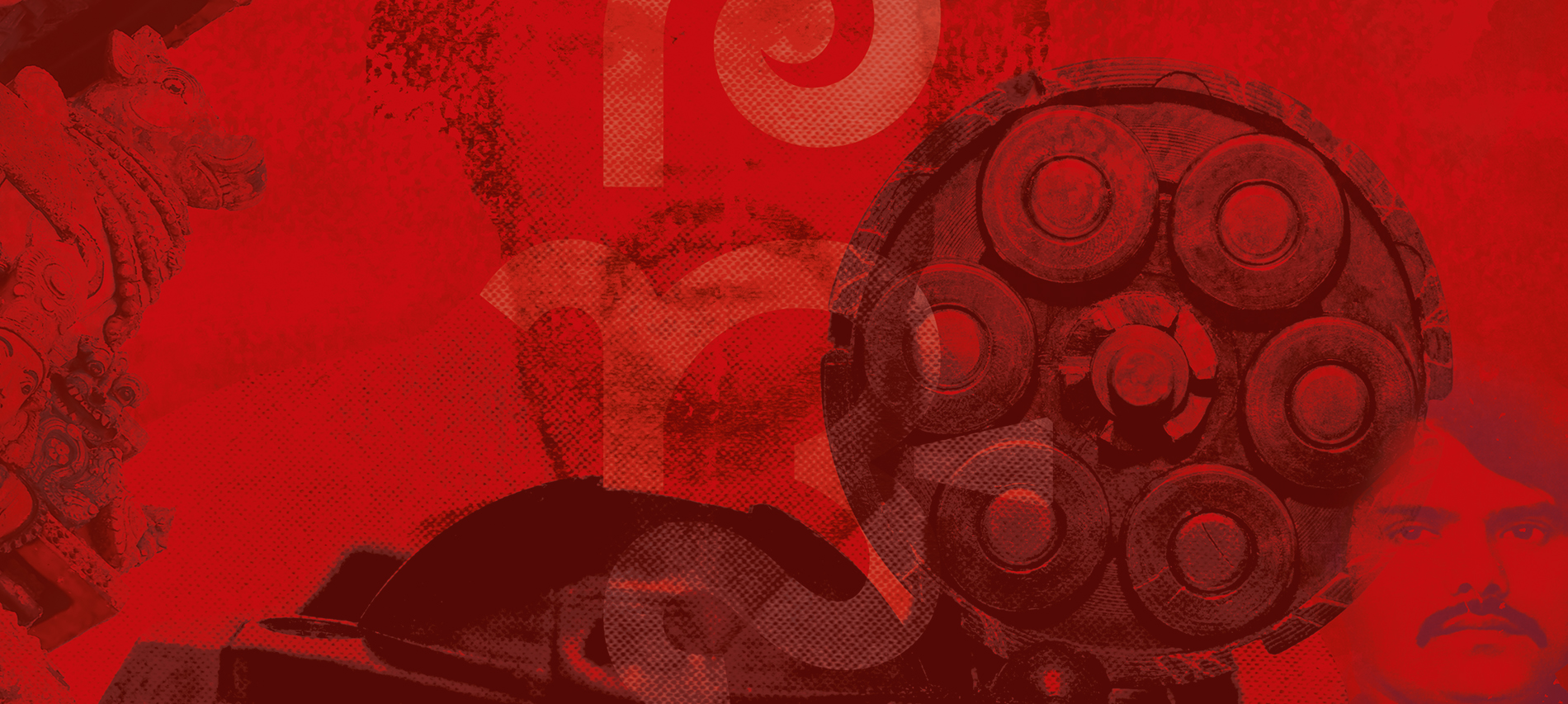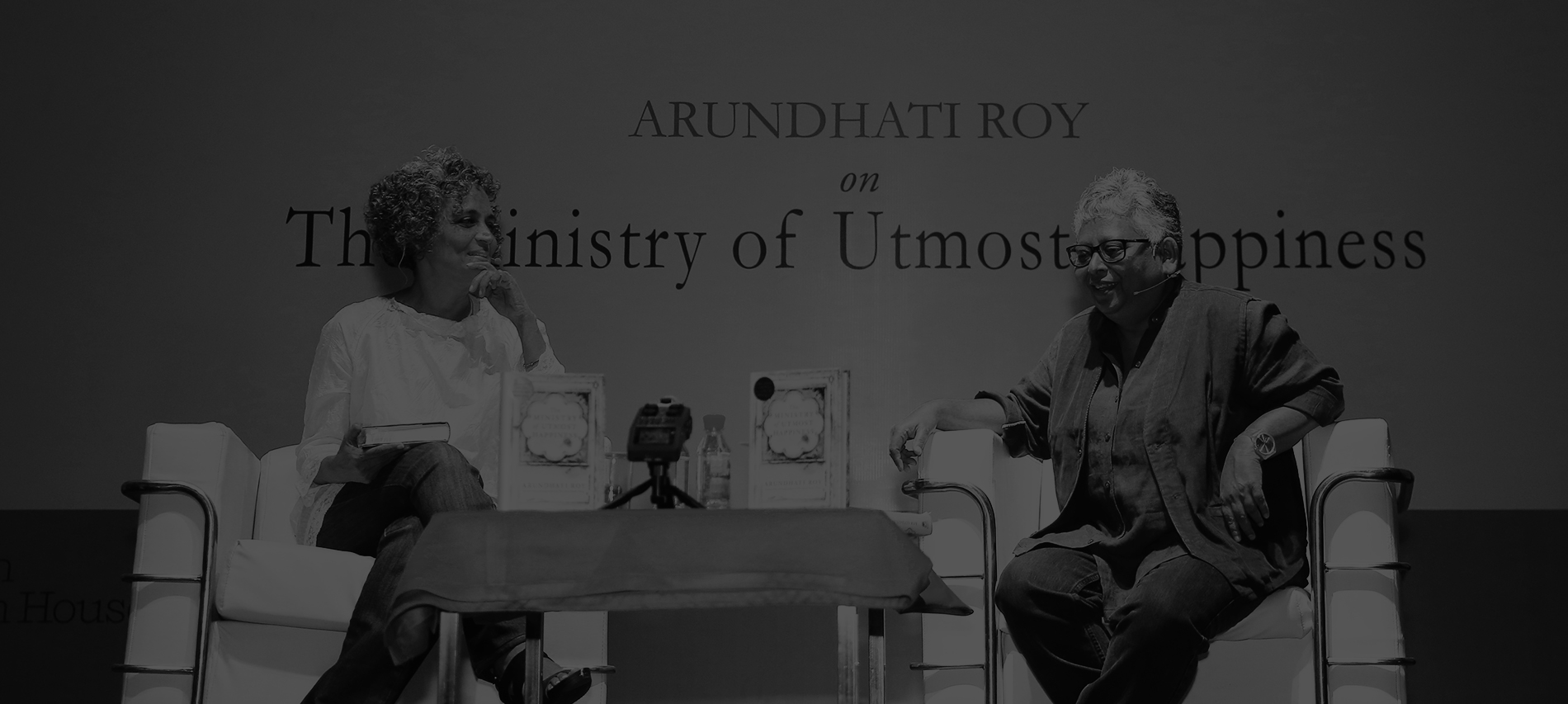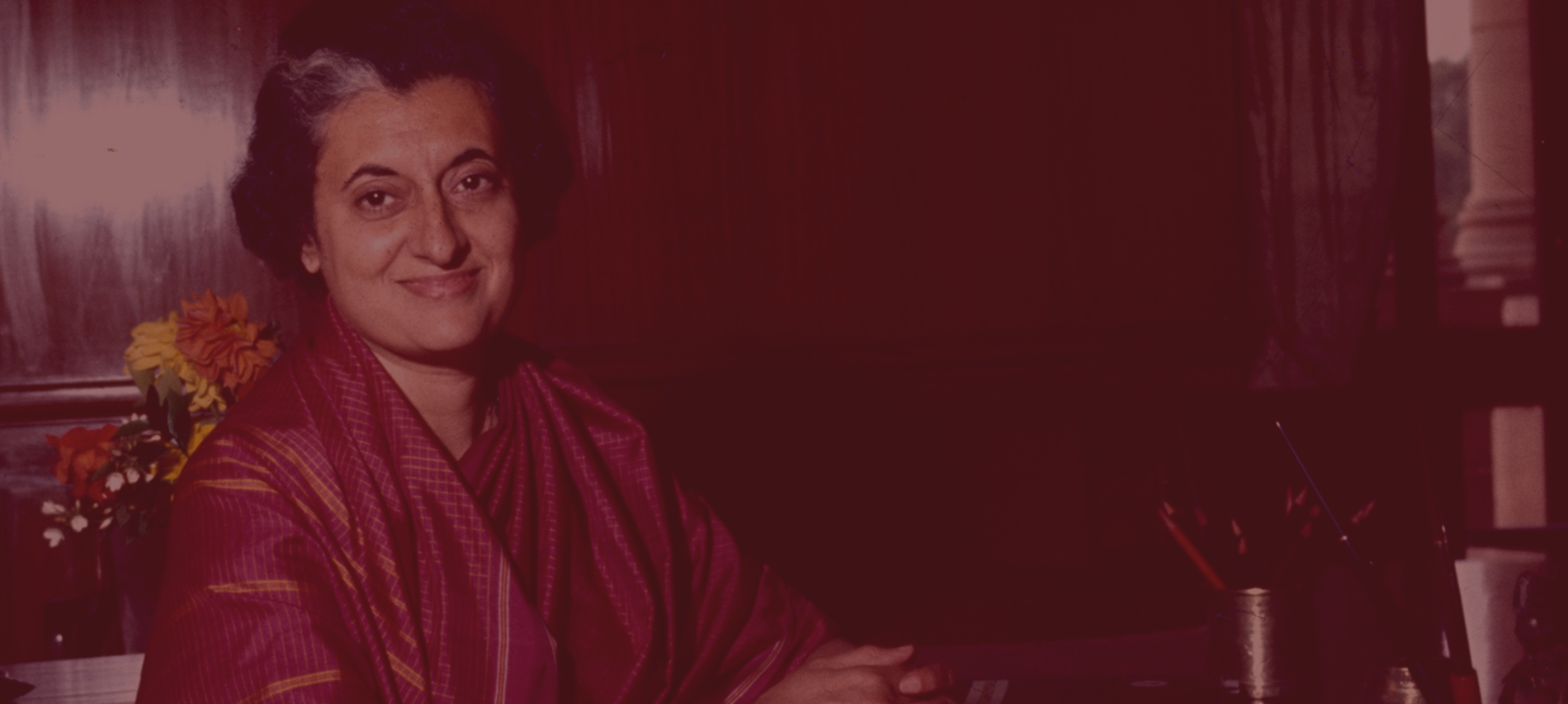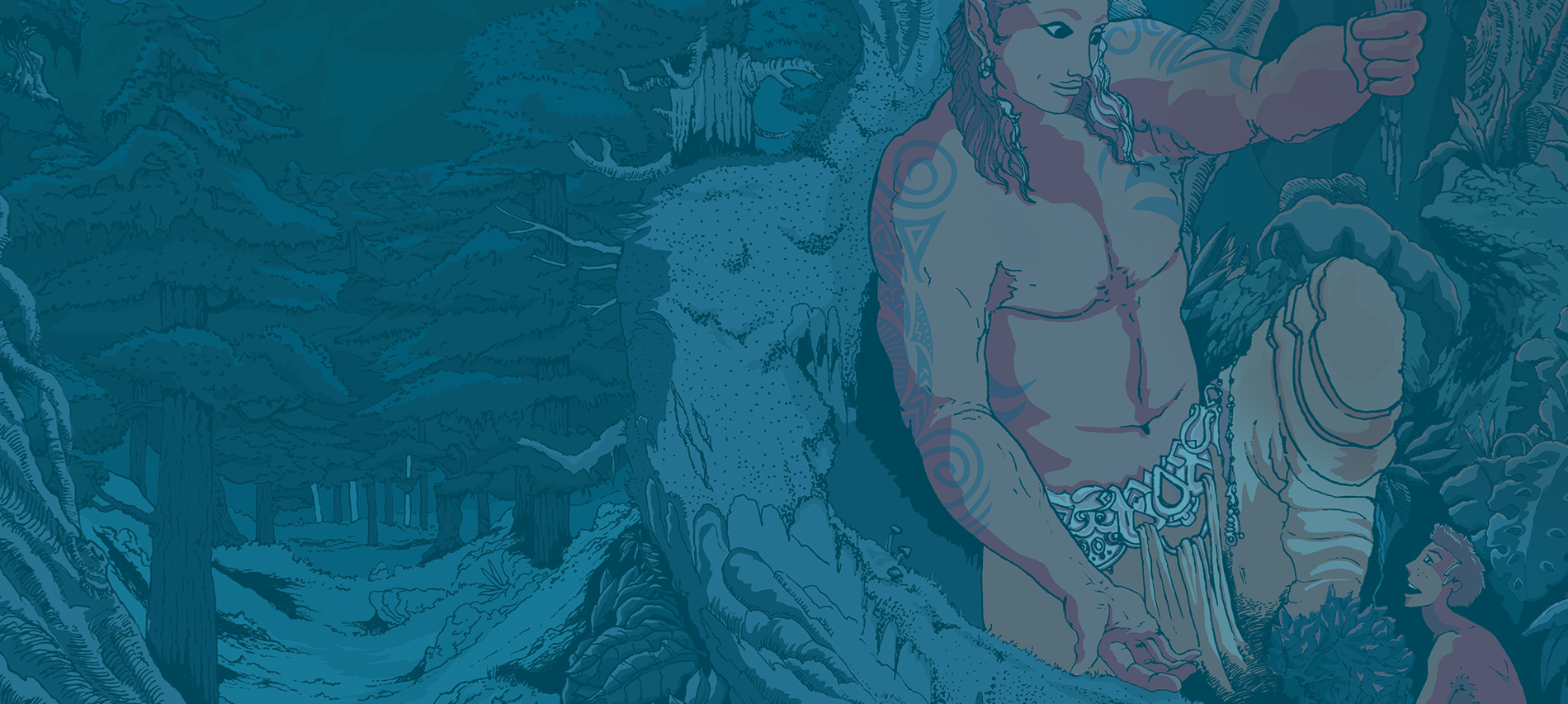Jyoti Shelar explores the story of local goons turned powerful dons of India’s Garden City in her newly released The Bhais of Bengaluru. From Muthappa Rai to Agni Shreedar, Shelar researches the history of the influential figures of Bengaluru’s underbelly.
Here are a few things you might not have known about the dark underworld of Bengaluru:






Did you know all of these?

Tag: featured
The Ministry of Utmost Happiness with Arundhati Roy — Opening Day at Penguin Fever 2017
“One of the great risks of success and fame in the arts is that you could become domesticated or domesticate yourself by wanting to replicate or…reward people’s expectations,” — said the inimitable Arundhati Roy in her lucid voice, enrapturing a packed auditorium as she opened this year’s Penguin Fever, a special edition of the Spring Fever, celebrating 30 years of Penguin in India.
As the autumn chill in the air slowly descended upon an enthusiastic audience queueing up at the gates of the India Habitat Centre in Delhi on October 26, the hall inside warmed up to the lilting voice of Arundhati Roy reading pages from The Ministry of Utmost Happiness.
In conversation with professor and documentary filmmaker, Shohini Ghosh, Roy reflected upon her journey through the years as an author and more.

“The God of Small Things blew my life apart, in good and bad ways,” she said, on being asked the question of her 20-year-long sabbatical from fiction writing.
This led Ghosh to ask the writer about the connections between her two works of fiction, especially the curious question — “Where do old birds go to die?” that took off from the pages of The God of Small Things two decades ago and flew all the way into the pages of The Ministry of Utmost Happiness. Some connections were deliberate, while some others were not, came the reply.

The quaint, haunting world of the Jannat guest house, as built by her character Anjum in the middle of a graveyard, (in The Ministry of Utmost Happiness) houses “social, sexual and political dissidents”, Ghosh remarked. She went on to ask what inspired the writer to sketch these wonderfully unique characters, only to interrupt her own question and ask “Are they around?” to a delighted Arundhati Roy and an amused audience.
“They are here, can’t you see them? They are always around,” quipped Roy as she continued, “They moved in and they are not moving out. They are not going anywhere.”
The author revealed how her early days as a student (and a topper) of architecture had a rather heavy influence on her love for structuring a story. She went on to say, “One of the joys of writing fiction for me, is the joy of being able to describe landscape.” This explains her lavish descriptions of the lands her characters lived in, evoking sparkling images of flowing rivers and animals that can think out loud.

Roy dwelled upon how her stories may have initially seemed to her like cities — concrete, urban jungles, but in reality, they turned out to be “underwater cities”.
On writing, the author said that she does not approve of labels being put on them — “I want to write something that I can’t describe. I want to write something on the air we breathe,” she insisted.

As the floor was opened for the eager, enthralled audience, questions one and many came in from every corner of the auditorium.
To one such query about how she decided to zero down on certain “issues” while writing The Ministry of Utmost Happiness, Roy said she refuses to treat anything as an “issue”.
“It’s a very impersonal thing,” she remarked. To her, “it’s a way of seeing the world,” it’s about the “air we breathe”.
The evening seemed to have passed in the blink of an eye as Roy, on a closing note, left her audience to ponder over a few words — “A novel is a universe I create for a person I love to walk through. I never write for one person.”
As she read a few more lines from her newest book and drew the curtains for the evening, Arundhati Roy’s session set the perfect premise for the festival of words to prepare for the coming five days of Penguin Fever, in the heart of the capital.
5 ‘Consolidators’ You Should Know About
Prince Mathews Thomas is a renowned journalist who has written various reputed national dailies such as Economic Times, Business Standard, Dow Jones Newswires and Forbes India. In his book The Consolidators he tells the success stories of seven second-generation who turned around the companies they inherited from their fathers with their imagination, foresight, and gumption.
Here are five success stories from the book:
Ajay Bijli, Chairman and Managing Director of PVR Ltd.

Mithun Chittilappily, Managing Director of V-Guard Industries

Rituraj Sinha, Chief Operating Officer at SIS

Vikas Oberoi, Chairman and Managing Director of Oberoi Realty Ltd.

Priya Paul, Chairperson of Apeejay Surrendra Park Hotels

Aren’t these stories inspiring?

5 Quotes that Show Indira Gandhi was the Iron Lady of India
Indira Gandhi is not only remembered as the only woman prime minister of the country but also as a political leader with nerves of steel. She broke the conventional, democratic ruling method that her family had been using and adopted a somewhat authoritarian way of ruling the nation.
Nayantara Sahgal in her book Indira Gandhi: Tryst with Power answers the questions everyone ponders upon about her rule.
Being Mrs Gandhi’s cousin, Sahgal articulately talks about her individualized style of functioning in politics and the changes the country went through during her rule.
Here are five quotes that show why Mrs Gandhi was called the Iron Lady of India:





Read more about Indira Gandhi’s political regime in Nayantara Sahgal’s Indira Gandhi: Tryst with Power.

A Glimpse Into the Emotional Side of Indira Gandhi, An Excerpt from ‘Indira Gandhi: A Biography’
Indira Gandhi was the first female Prime Minister of India. While most of her life was dominated by politics, only a few knew Indira’s non-political persona.
Pupul Jayakar’s ‘Indira Gandhi: A biography’ seeks to uncover the many personalities that lay within Mrs Gandhi. The book also reveals the complex personality of Indira Gandhi—her thoughts and feelings, her hates and prejudices, her insights and her faults, her loves and emotional entanglements.
Here’s an excerpt which gives a glimpse into the emotional side of the late prime minister.
Motilal Nehru died in Lucknow in the early hours of 6 February 1930. His son Jawaharlal Nehru, released from jail a week earlier, in view of his father’s deteriorating condition, had, in desperation, moved his father from Allahabad to Lucknow where the medical facilities were
better. Motilal had been like an elder brother to Gandhiji and it was as part of the family that Gandhiji, released from detention by the British Government, hastened to see Motilal and accompanied him to Lucknow. He found Motilal’s face swollen beyond recognition, his body racked by asthma and his kidneys failing. The old patriarch died cradled in the love of his family and friends. He remained a nonbeliever to the end of his life; scorning priests and the recitation of mantras, he had joked with Gandhiji, challenging him to a race to heaven. He said if they were to die at the same time, the Mahatma would probably walk alone across the river of death, while he, Motilal, would speed across it in a motor-boat and shoot past the gates of heaven. Whether he would be allowed into heaven or not was a totally different matter. In a more serious mood he told Gandhiji, ‘I am going soon and I shall not be here to see Swaraj, but I know you have won it and will soon have it.’
On the night of Motilal’s death Jawaharlal was with him till midnight. Jawaharlal later told Gandhiji:
A very strange thing happened to me. Papa told me last
night that he had been taught the Gayatri Mantra in his
childhood, but he never cared to repeat it and thought he
had forgotten it completely long ago, but that night as he
lay in bed it all came back to him and he found himself
repeating it.
Motilal’s body, wrapped in the Congress flag, was brought from Lucknow to Anand Bhawan. He was cremated at the Sangam in Allahabad, at the point where the three rivers met. His ashes were cast into the rivers, to journey to the oceans. Vast mourning crowds accompanied the cortège. Gandhiji was present, so were Swaroop Rani, Vijayalakshmi, Krishna, Kamala and Indira.
Jawaharlal cried out in grief at the loss of his father, a mountain had crumbled; he was now head of the family, responsible for his mother and sisters. He resolved to make them feel that nothing had changed in the old home. The bond between father and son had matured beyond love into mutual respect and pride; a relationship that united them in a commonality of work though, perhaps, not of mind. Jawaharlal was in those early years an austere man of few needs,
Motilal, a man whose laughter filled the vast house, who could gather his extended family and friends in his embrace, savour abundance and give with a generosity of heart. He had a razor-sharp intellect and a joie de vivre seldom seen amongst Indians in the third decade of the twentieth century.
Indira had loved her grandfather with the intensity of a child. He had protected her, come to her aid when her parents rebuked her, listened to her tiny problems and laughed them away. He was the anchor in her insecure, chaotic world; the foundation stone that was always there; a presence so total that there was no space left to be alone or insecure. Alone, almost forgotten in Anand Bhawan, Indira wept, hidden behind a pillar. It was her first introduction to sorrow; her body was racked by an emotion with which she was not familiar.
Referring to her grandfather Motilal five decades later, Indira said, ‘With his death Anand Bhawan was silent. His resounding voice no longer echoed in the rooms or along the verandahs.’ She described his warmth and his fierce short-lived anger. Smiling at her memories, she said:
He always seemed to fill a room, although I now realize
he wasn’t really that tall, but at that time I thought he was
very tall and broad . . . and when he laughed the whole
house sort of shook and laughed with him. He was a
biform human being, both man and woman, with strength,
intellect and an abundance of feeling.
With a twinkle in her eye she went on to say that she felt that she was like him. Jawaharlal felt depleted. After his father’s death, he felt the need to renew himself, to lay down the complex political problems that surrounded him, to relax, to look at trees, meet people, to have a holiday. So he sailed with Kamala and Indira on the S.S. Cracovia to Ceylon (now Sri Lanka).

5 Reasons Why Margaret Atwood’s ‘The Handmaid’s Tale’ Resonates the Current Times
Margaret Atwood is one of the renowned names in the literary world. Some of her works include The Handmaid’s Tale (winner of both the Arthur C. Clarke Award for Science Fiction and the Governor-General’s Award, shortlisted for the Booker Prize and made in a major film) and The Robber Bride and Alias Grace.
Margaret Atwood wrote The Handmaid’s Tale while living in in West Berlin in 1984. The themes of the book reflected the sentiments associated with standing of the Berlin Wall. Although it has been more than three decades, the themes are still relevant.
Here are five quotes that depict how The Handmaid’s Tale is a powerful evocation of the present time:





Get your copy of Margaret Atwood’s poignant novel here.
Things You Didn’t Know About Angie Thomas
Angie Thomas is the author of The Hate U Give. It’s her debut novel, and she was first inspired to write it while still a senior in college after news that an unarmed young black man, Oscar Grant, had been shot in the back by police. A supporter of the #BlackLivesMatter movement, she was enraged by his killing and the way the media and authorities reported it. Through her writing, Angie wants to challenge the racism that is perpetuated by those in power
Here are some more things you didn’t know about the author.





Pick up your copy of The Hate U Give now.

6 Things You Didn’t Know About Dan Brown
Dan Brown is the bestselling author of many acclaimed novels. His works include masterpieces like Digital Fortress, Deception Point, Angels and Demons, The Da Vinci Code, The Lost Symbol and most recently, Inferno. Three of his Robert Langdon novels have been adapted for the screen by Ron Howard, starring Tom Hanks. They have all been international blockbusters.
Here are some of his things you should know about the renowned author.






Did you know all of these facts about the author?
Get your copy of Dan Brown’s latest novel Origin here.
The Beginning of an Adventure Like No Other: ‘Lost in Time: Ghatotkacha and the Game of Illusions’ — An Excerpt
We all love going on trips as soon as holiday season kicks in, don’t we? But have you ever been on a journey that ended with you travelling to another plane of reality, maybe one from the books you’ve read? Sounds impossible, doesn’t it?
Well what if we told you this happened?
Get ready for the gripping story of young Chintamani Dev Gupta who while on a birding camp is magically transported to an unknown world of improbable creatures. Things get stranger still when he meets the master of illusions, Ghatotkacha and his mother, the demoness Hidimba.
Read on to know what happens next!
I am Chintamani Dev Gupta, male, 4’11”, thirteen years of age. Almost fourteen. It won’t surprise anyone to know that my name was, at an early and vulnerable age, shortened to Chintu, then mutated to Chintu Pintu. It’s ignominy to have a name like Chintu Pintu, but it’s a cross I’ve learnt to bear. I feel like telling them—the sneerers—‘Man, you don’t know where I’ve been, you don’t know what I’ve seen!’
The story that will unfold in these pages has been recorded with all the memory megabytes at my disposal, but when you— one—me—travel through time, across time, the grey cells tend to seize up and short-circuit in transit.
But let me begin at the beginning. If there ever is a beginning, if time follows a straight line, follows a predictable geometrical pattern in its unfolding. Which I happen to know, from my incredible personal experiences, it does not.
Those of you (possibly in the minority) who have read Carl Sagan’s book Contact might appreciate wormholes and the ways to fool or get fooled by time. Whereas those of you (more hands up this time maybe) who are fans of Terry Pratchett, might remember that he said, ‘Stories of imagination tend to upset those without one.’
But I’ve nattered on enough. Let’s get to the flashback with Chintamani Dev Gupta (aka Chintu Pintu) off on an enforced holiday to the Sat Tal Birding camp. I remember it as though it were yesterday. My parents had just split up, even though they continued to be holed up in the same house. Mum’s lady lawyer practically camped on our living room sofa. Papa hadn’t shaved for several days. Things were bad. And to get me out of the way, I had been dispatched here, to an insect-infested field near the aforementioned Sat Tal Lake.
It’s not as though I was wildly interested in birds. I suspect it was just the most convenient way to pack me off, dumping me in ornithology heaven. So there I was, amidst the tweets and the cheeps and the trills and twitters of birdsong, dreaming of football and butter chicken and the joys of home.
Can’t wait to find out more? Don’t forget to be the first one to grab your copy of this magical tale of time-travel, unusual friendships and a whole lot of adventure!

12 Things You Didn’t Know About Magandeep Singh
A certified sommelier, Magandeep Singh found his calling in wines while working in France. In India, he likes to divide his time between food and wine tastings, and writing columns about wine. He has also hosted a show called “Around the World in 85 Plates” for NDTV Good Times.
His latest book ‘The Indian Spirit’ is a treasure trove for those who have the palate to enjoy their drink and curiosity to know where it came from.
Here are a few things you should know about the author.











How many of these facts did you know about Magandeep Singh?

















